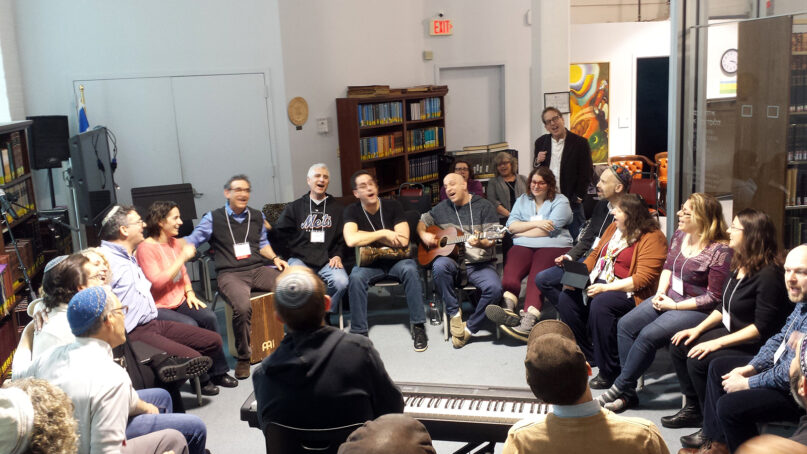DURHAM, N.C. (RNS) — Rachel Posner grew up a Conservative movement Jew, but when she decided to go back to school to become a rabbi she chose the independent Academy for Jewish Religion in Yonkers, New York.
Her reasons were varied. A licensed psychologist in private practice, she needed to continue working while going to school. The AJR gave her the flexibility of taking online classes on a part-time basis. It also offered the opportunity to study with teachers from different Jewish traditions, not just the one she had attended as a girl.
“The AJR has a deep and thoughtful way of addressing pluralism,” said Posner, 48. “For me, that was a fit, religiously and culturally. There’s an openness to embracing diverse points of view. It’s the most diverse Jewish space I’ve been in.”
Posner is now completing her field work at Beth El Synagogue in Durham, a Conservative synagogue where she is an intern. She hopes to work as a rabbi when she graduates, though she’s not sure yet if it will be in a congregational setting or in chaplaincy.
Posner’s route to rabbinic ordination is increasingly common. Seminaries in two of the largest Jewish movements are struggling with declining enrollments and pricey upkeep on vast campuses.
Meanwhile a growing number of Jews who don’t feel a kinship to any one wing of Jewish life are choosing independent or post-denominational seminaries such as the AJR.
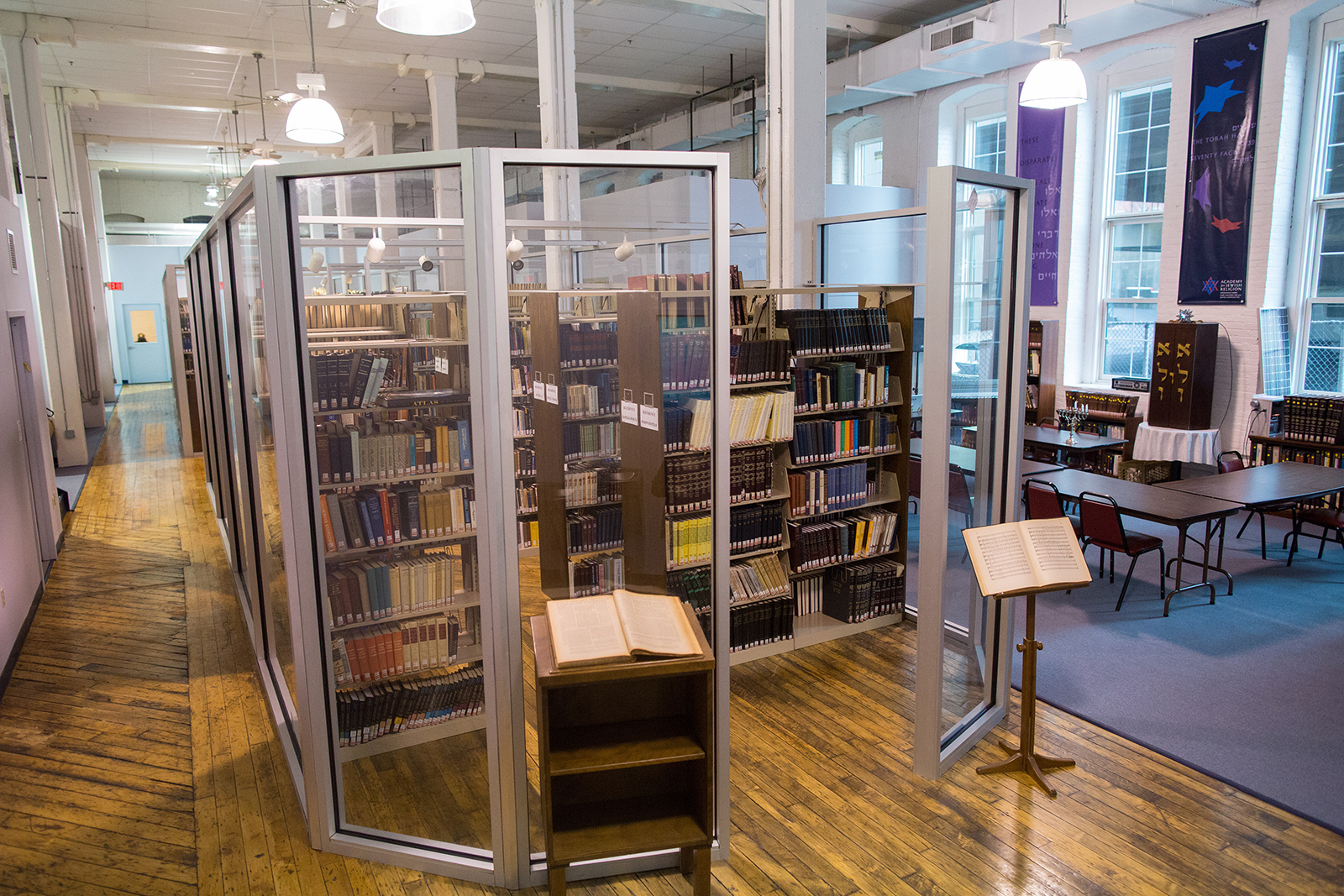
The Academy of Jewish Religion is housed in the old Otis Elevator factory building in Yonkers, New York. It features a glass enclosed library. Photo courtesy of AJR
This year, the AJR has 51 students enrolled in its rabbinical program, 11 in its cantoral program, and six students pursuing both. Hebrew College, another independent seminary in Newton, Massachusetts, has 75 students enrolled in its rabbinic degree program this year.
By contrast, the Ziegler School of Rabbinic Studies in Los Angeles, a Conservative movement school, has 34 rabbinical students this year. The flagship Cincinnati campus of Hebrew Union College, a Reform seminary, has 27 rabbinical students. Both schools plan to consolidate or contract.
The board of the Hebrew Union College Institute of Religion will meet next week to consider a recommendation to end rabbinic training at the Cincinnati campus. The college, founded in 1875, is considering sending prospective rabbinical students to its two other campuses in New York and Los Angeles.
“Given declining enrollment and future demographic projections, it is no longer practical or prudent to continue delivering rabbinic education as we do now, with three full residential programs,” the recommendation to the Hebrew Union College Board reads.
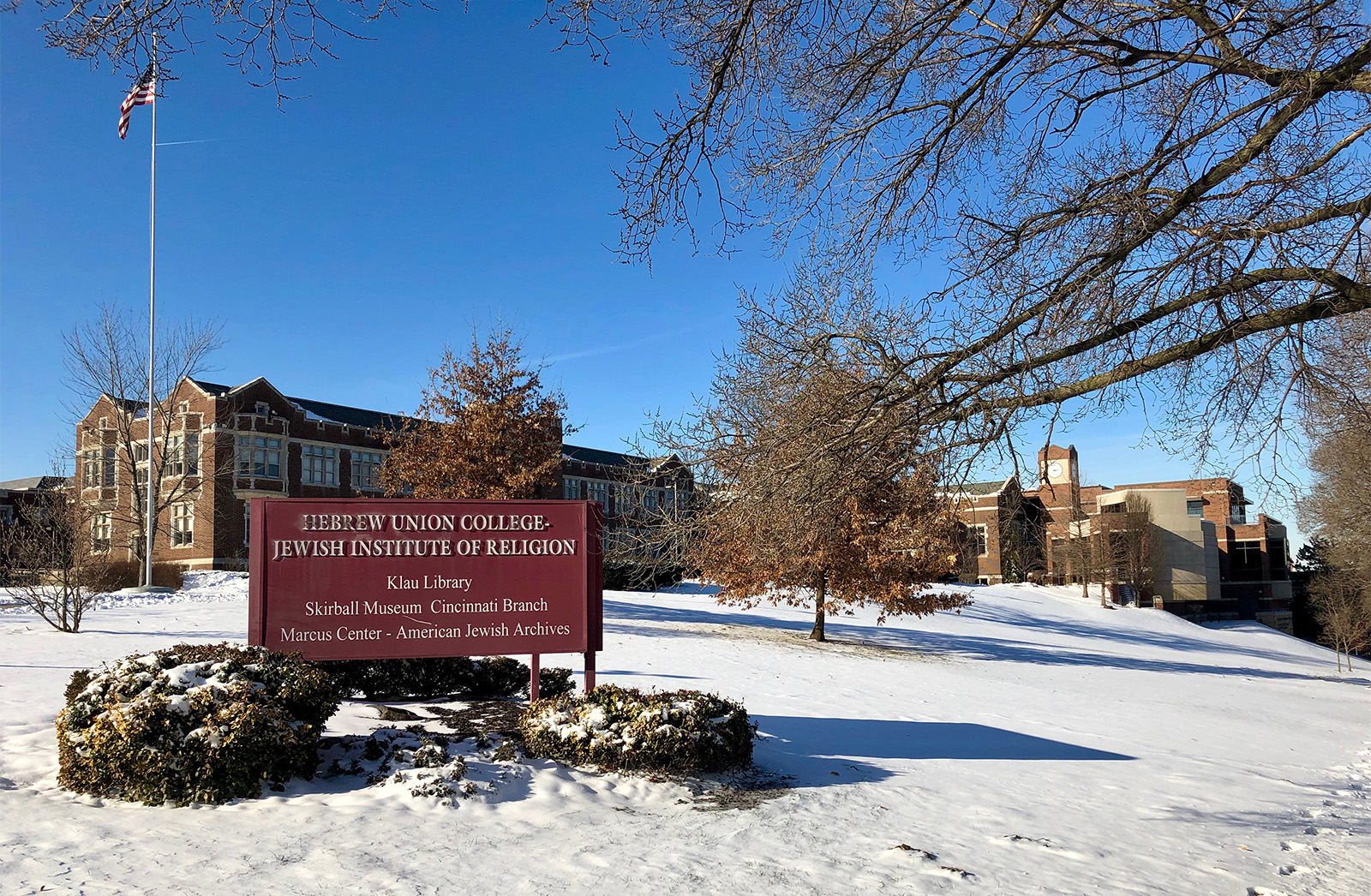
The campus of Hebrew Union College – Jewish Institute of Religion in Cincinnati in January 2019. Photo by Warren LeMay/Wikimedia/Creative Commons
That reality is causing lots of heartache among the movements’ leaders. A letter from nearly 300 alumni of Hebrew Union College urges the school to reject the recommendations. They say there are better ways to cut costs. Closing the Cincinnati residential campus would “entail irreparable damage to treasured resources,” such as the library and archives buildings, they contend. And the college must do better in recruiting new students and reforming its educational offerings.
Last month, the Ziegler School announced it was seeking buyers for its Bel Air campus. It will continue to offer rabbinic degrees but may seek a smaller physical footprint.
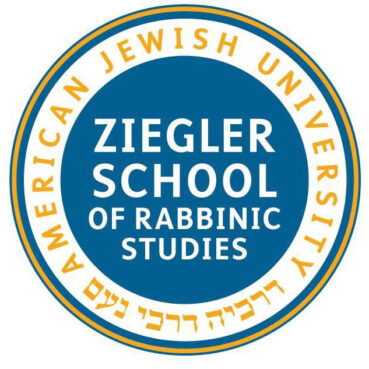
Ziegler School of Rabbinic Studies logo. Courtesy image
The school recently made the unprecedented decision to dramatically lower tuition from $30,000 a year (with financial aid and government loans) to $7,000 a year.
But whether lower tuition will attract more students is not clear. Rabbi Cheryl Peretz, associate dean of the Ziegler School of Rabbinic Studies, said the school is expected to admit seven or eight students next year.
Late last year, the Conservative movement’s rabbinical group warned its 560 congregations, 80 of whom are searching for a new rabbi, that some positions will remain unfilled since there aren’t enough Conservative rabbis to fill those openings.
RELATED: A shortage of Conservative rabbis has Jews reexamining the pulpit role
The rabbi shortage is benefitting rabbinical students at independent schools who have more job options when they graduate.
“What makes AJR unique is that it trains students like me to be a rabbi or cantor in any movement,” said Steven Goldstein, a New Jersey-based lawyer and political consultant studying to be a rabbi at the Academy for Jewish Religion in Yonkers. “There’s no longer a disadvantage in going to a non-denominational seminary in terms of placement.”
The Conservative, Reform and Reconstruction movements still dominate non-Orthodox Jewish life, and that’s unlikely to change in the short term. About half of all U.S. Jews — 54% — belong to either the Conservative or Reform branches, according to a 2020 Pew survey.
But a third (or 32%) of Jewish adults do not identify with any particular stream or institutional branch of Judaism. A growing number of non-denominational synagogues are now reaching out to these unaffiliated and disengaged Jews.
Rabbis at these independent synagogues say the institutional movements are no longer attuned to the needs of modern Jews, who may find the differences between them negligible and their ways of gathering hidebound.
RELATED: Romemu strikes a popular balance of Jewish tradition and interfaith spiritual seeking
“We need spiritual leaders who meet people where they’re at in creative and innovative ways and not necessarily by adhering to the traditional tropes that Reform and Conservative schools offer,” said Rabbi Amichai Lau-Lavie of Lab/Shul, a New York-based congregation.
Lau-Lavie earned his rabbinic degree at the Jewish Theological Seminary, a Conservative school, but parted ways with the movement soon after his ordination when he decided to marry a Jewish and non-Jewish couple, which the Conservative movement does not allow. Lab/Shul evolved from a theater company and storytelling group to a congregation of some 300 families.
Recently the congregation hired an associate rabbi who is a graduate of another independent seminary, Hebrew College.
Non-denominational congregations are especially prevalent in large cities such as Chicago, Los Angeles, New York, Seattle and Washington, and in rural areas where Jews can’t afford to have three or more different synagogues.
The denominational system is a relatively recent one, said Sylvia Barack Fishman, emerita professor of contemporary Jewish life at Brandeis University.
“Until the 19th century we didn’t have the traditional wings of American Judaism. And in many other countries we don’t have them either: South America or South Africa or Europe.”
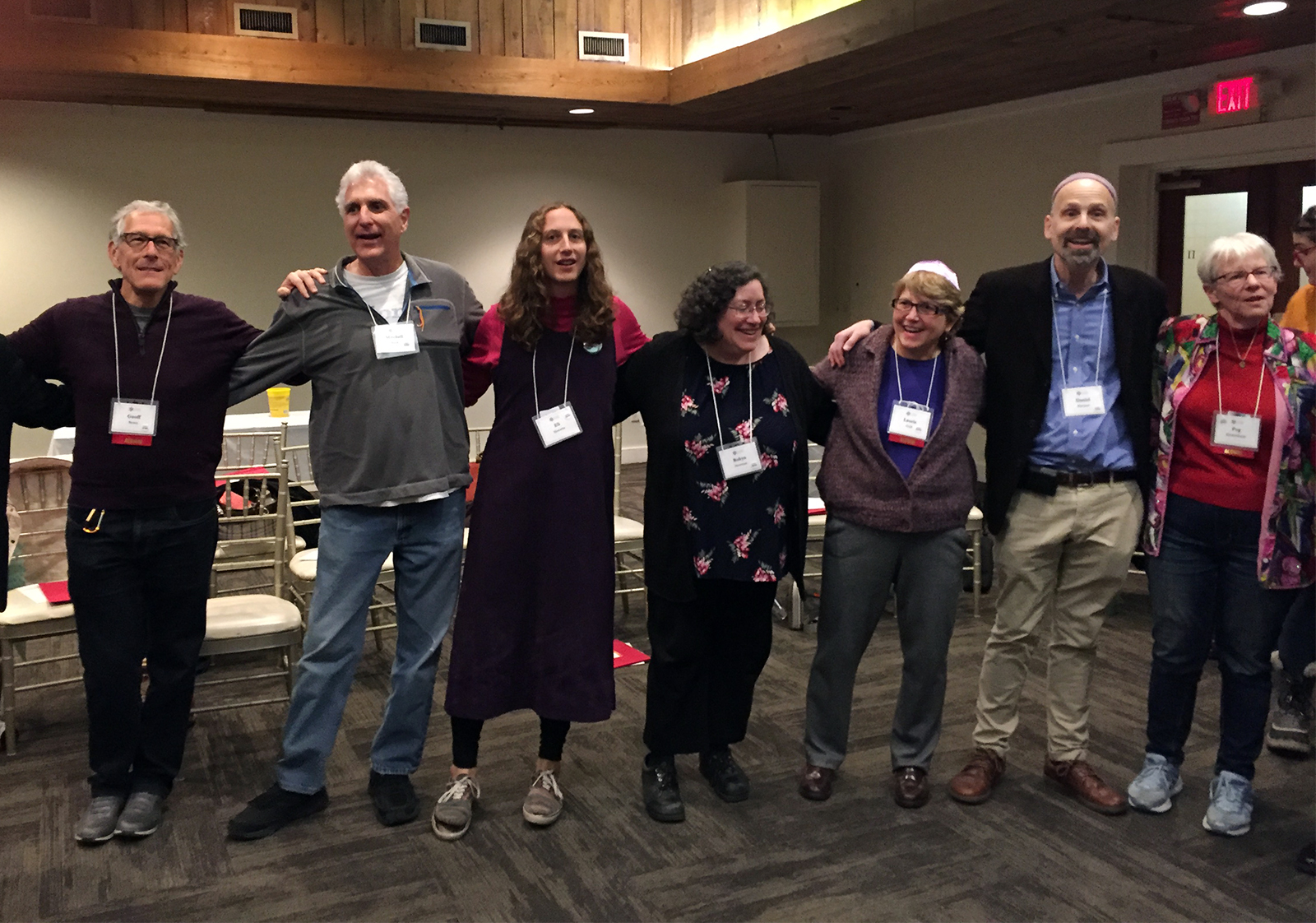
A Nov. 2019 communal gathering at the Academy of Jewish Religion in Yonkers, New York. Photo courtesy of AJR
Ora Horn Prouser, CEO and academic dean of the Academy for Jewish Religion, said the beauty of independent seminaries like hers is the flexibility. It does not own property but rents space and has been experimenting with distance education long before the pandemic. It remains fully online but this summer will reinstitute its weeklong “intersessions.” (The school is on a trimester schedule, and rabbinical students must attend two in-person intersessions.) That allows the school to draw on students from 23 states, Canada and Israel without asking them to relocate.
Its curriculum includes the traditional study of biblical and rabbinic texts, but it also requires students to take a class in science in Jewish life as well as sacred arts. This summer for its weeklong in-person session it is offering a class on circus arts to get students to think with their bodies, not just their minds.
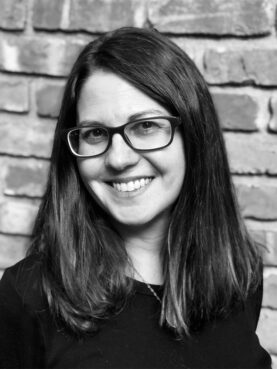
Rachel Posner, a student at the Academy of Jewish Religion in New York. Posner now lives in Durham, North Carolina. Photo courtesy Rachel Posner
The school recently became the only Jewish seminary in the U.S. and Canada to be accredited by the Association of Theological Schools, which traditionally has only accredited Christian schools.
“It’s our belief that a Jewish community that cherishes diversity is one that can grow and make a difference,” Prouser said.
For Posner, the psychotherapist, online classes have been the only way she could viably earn a rabbinic degree. She began her studies when she was living in New York, but last summer her husband took a job in Durham, and the family, including two teenagers, made the move to North Carolina. She’s been able to continue her studies without interruption.
“The school is organized to cater to student needs,” Posner said. “It’s a lean and responsive place. It’s been an incredible experience.”
RELATED: Reform movement publishes extensive report on sexual misconduct in its youth programs
